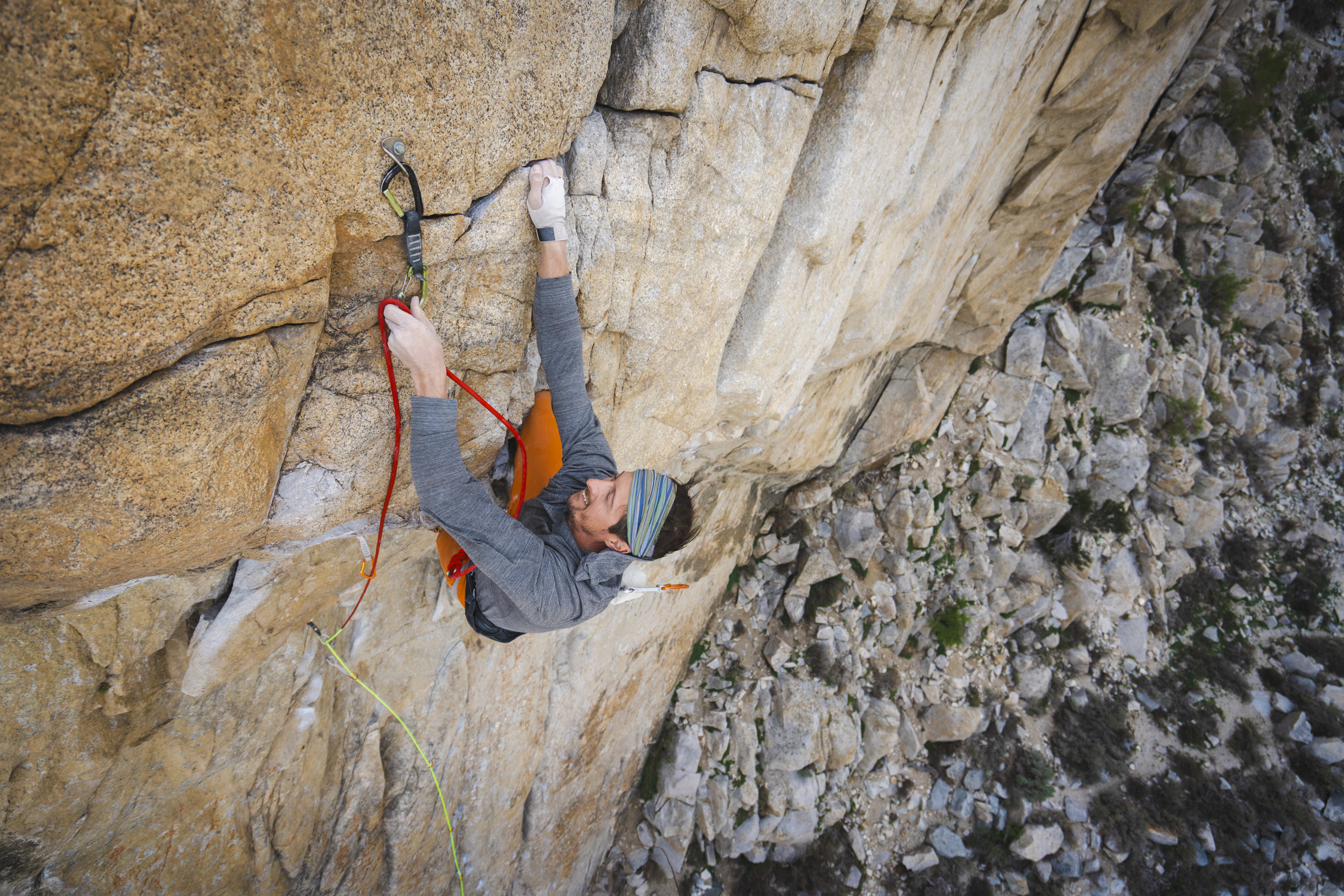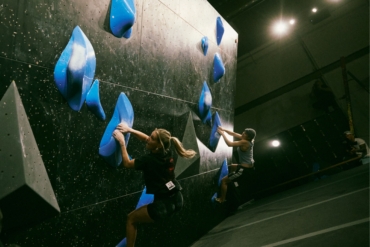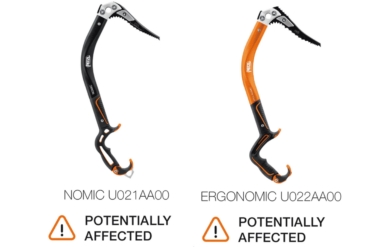The Birdlime 1R 9.8 climbing rope is a follow-up to Edelrid’s Swift Eco 8.9, the first PCA/PFA-free dry-treated rope. Since the 2019 offering, the brand has expanded its eco-friendly efforts.
Edelrid released the Neo 3R 9.8, the first climbing rope made from used cords, in 2023. In 2024, it launched a partly recycled harness and climbing helmet, completing a recycled rock climbing “kit.”
Straying away from petroleum-based synthetics feels like a natural progression in climbing gear, and castor oil has been proven in other consumer goods.
Castor Oil? But How?

Bio-based plastics and textiles aren’t new. Made from castor oil, polyamide-11 (Nylon 11) started selling in France in 1945. However, this bio-based alternative has not become mainstream, possibly because it still costs more than its petrochemical cousin, Polyamide-6.
The production of bioplastics from plant oils is similar to making plastics from petroleum. Both use chemical processes, like polymerization and condensation, to manipulate long-chain acids. These bioplastics are developed in areas where “regular” plastics are already manufactured to prevent a total overhaul of production facilities.
Other plants are suitable for the manufacturing of alternative plastics and textiles. Corn, wheat, sugar cane, and potatoes are commonly used in a process that leverages the high sugar content. Soybean oil, corn oil, and rapeseed oil are other oils popular for bio-based raw materials.
Other plant materials, such as algae and even bacterial fermentation, are sources of bioplastic, but scaling up to make a real impact has been challenging and costly.
Here’s a recipe for making corn-based bioplastic in your kitchen for the industrious and curious. You only need corn starch, corn oil, water, food coloring, and a microwave oven.
Is This Really More Sustainable?
The Birdlime 1R 9.8 is more sustainable because it uses significantly less petroleum to produce, which is Edelrid’s primary goal with this cord.
This is why the rope carries the brand’s “1R” nomenclature: 1R represents reducing the use of non-sustainable materials in production, 2R means reusing materials in production, and 3R means recycled materials make up the final product.
It would be convenient (and easy to assume) to claim that the Edelrid Birdlime 1R 9.8 will biodegrade. But there’s a catch.
The castor oil-based bioplastic in the rope will technically biodegrade, but only under certain conditions. These conditions include temperatures of 122 to 158 degrees Fahrenheit. So, in short, the part of the Birdlime rope made from castor oil will biodegrade at an appreciable rate in an industrial compost facility but not in your backyard garden.
Again, Edelrid’s primary goal in developing the Birdlime climbing rope was to reduce petroleum use. It’s prudent to keep it all in context; the amount of petroleum saved in this rope is a very tiny, incremental gain in sustainability across the entire outdoor industry or even in climbing alone. But, it’s a start.
Edelrid Birdlime 1R 9.8 Details

The Birdlime is available now at REI. The technical details are as follows:
- Color: Pink/royal
- Length: 70 m
- MSRP: $220
- Thermo Shield treatment for pleasant handling
- 3D lap coiling enables instant use without tangles
- Rope type: Single
- Diameter: 9.8 mm
- Dynamic elongation: 35%
- Impact force: 8.5kN
- Core proportion: 59%
- Sheath proportion: 41%
- Weight per meter: 62g/m
- Static elongation: 5.2%
- Number of falls: 6
- Certifications: EN 892
Edelrid just sent me the Birdlime 1R 9.8, so look for a review in the future.








